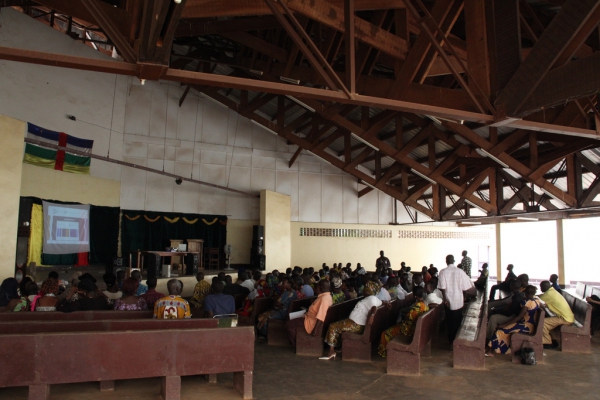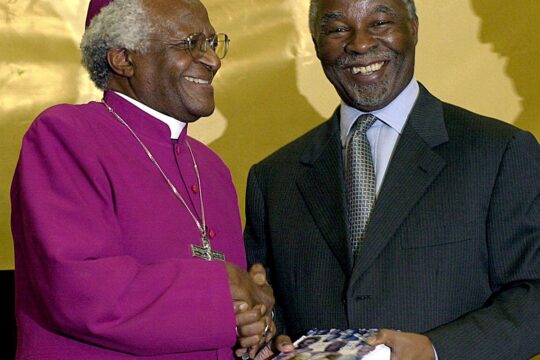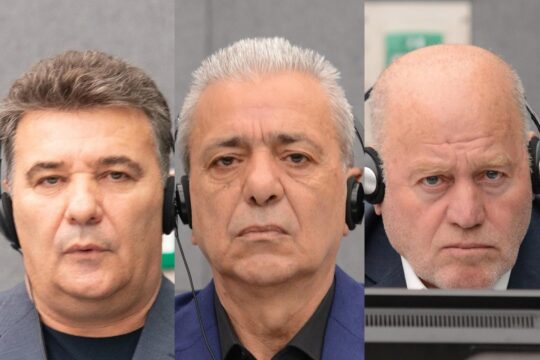The transitional justice week was marked notably by a South African court’s decision that the country’s notification of withdrawal from the International Criminal Court (ICC) was unconstitutional. This is at least a victory for the rule of law.
The decision of the High Court in Pretoria is based on procedure and does not stop the government from going ahead with ICC withdrawal, according to Hugo van der Merwe, Research Director at the Centre for the Study of Violence and Reconciliation (CSVR) in Cape Town, who spoke to JusticeInfo. It nevertheless forces the government to go through Parliament and conduct a debate on its decision. “That at least opens up the space for more public participation and civil society input into the withdrawal” according to Hugo van der Merwe. But he thinks the High Court decision will only delay South Africa’s withdrawal from the ICC.
It is nevertheless symbolic. Pretoria, which had hoped to lead other African countries to withdraw from the ICC, now finds itself isolated and its legal ability to manage the process challenged. After the new Gambian President’s decision to revoke his predecessor’s ICC withdrawal notice, South Africa finds itself in the company only of Burundi, one of the worst human rights abusers on the African continent.
But it is not yet time for the ICC to cry victory. Withdrawals and threats to withdraw reflect growing African discontent with the Hague-based Court. The ICC should take advantage of this respite to listen to the Africans and reform itself.
Hybrid tribunals
Meanwhile in the Central African Republic (CAR) the government, with support from the ICC and international community, is trying to set up a Special Criminal Court, a mixed or hybrid tribunal with national and international staff and judges. “The hybrid courts were supposed in theory to offer the best of both worlds: being in the country concerned so as to allow popular ownership of the justice process, but with international judges to guarantee their impartiality, and all at an acceptable cost,” writes JusticeInfo’s editorial advisor Pierre Hazan in an article entitled “Challenges of the new Special Court for the CAR”.
The fact remains that the Special Criminal Court in the CAR, a divided and shattered country, will face many challenges. It will have to build legitimacy, conduct investigations to identify suspects in a context of insecurity, arrest them and ensure witness protection. It will also have to carry out effective outreach if it wants its mission to be understood by the victims and people concerned. In an interview with JusticeInfo, jurist Didier Niewiadowski, a former advisor to the French embassy in Bangui, points to the presence in President Touadera’s current administration of former aides to ex-president François Bozizé, suspected of serious crimes. He also reminds us that much of the country is still controlled by armed groups, which will make the task of Congolese Special Court Prosecutor Toussaint Muntazini Mukimapa very difficult. “Sixty percent of the country is under the control of armed groups,” says Niewiadowski. “Any official mission into those areas needs to be accompanied by strong protection from MINUSCA (United Nations mission in the CAR). Given this widespread insecurity and the number of criminals who could potentially be indicted, we can see the enormity of the Court’s task. We might even ask ourselves if the Special Criminal Court is not just a beautiful technocratic idea that will run up against the harsh realities of the CAR.”
Myanmar
Across the world in Myanmar, transitional justice is also controversial, as reflected in a JusticeInfo interview with researcher Matthew Mullen, author of “Pathways that Changed Myanmar” a book looking at different forms of political change in the country of Aung San Suu Kyi. “The desire to move forward into some type of transitional justice process is totally understandable, but transition has to be built on the voices of the people,” says Mullen. “There must be some kind of outreach effort before we can say what transitional justice in Myanmar should look like. Assigning the model is dictating transitional justice instead of facilitating it.”
Asked about a UN call for the establishment of a Truth Commission, Mullen continues: “It makes sense why you might want a Truth Commission, and why that could potentially be good for Myanmar. The biggest problem is that there has been no effort to figure out what people want. It is like jumping into this transitional justice machine, before we have any type of discussion about people’s priorities, what are their concerns, what kind of ideas they have. It is like the United Nations is dictating the transition by defining the model.”







